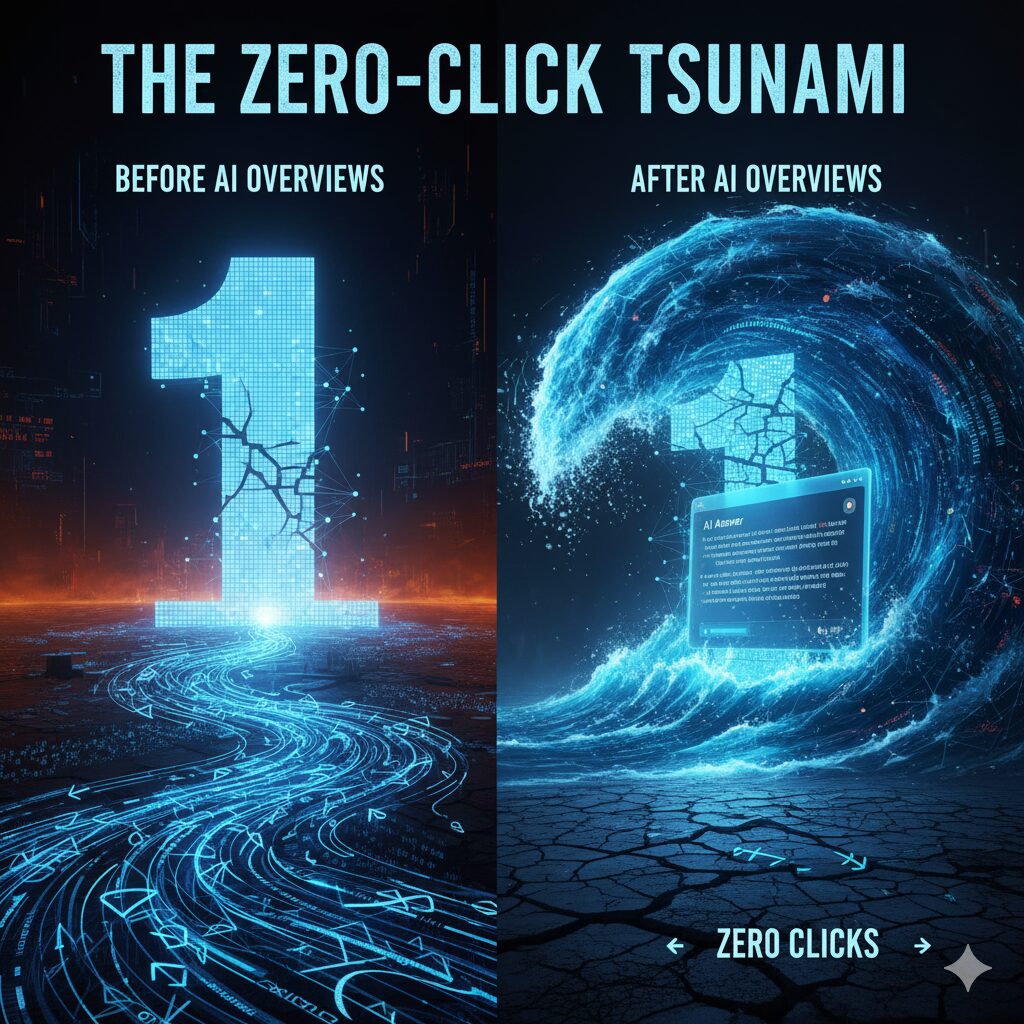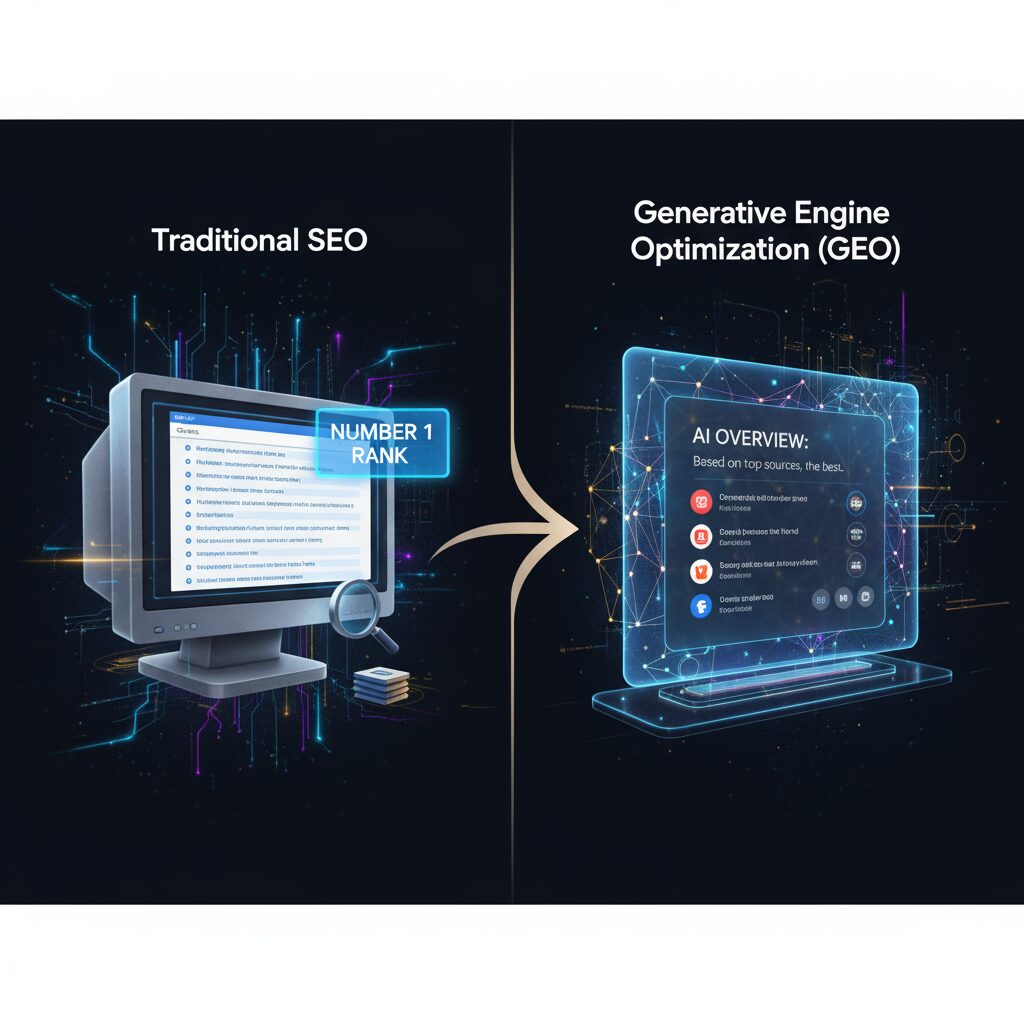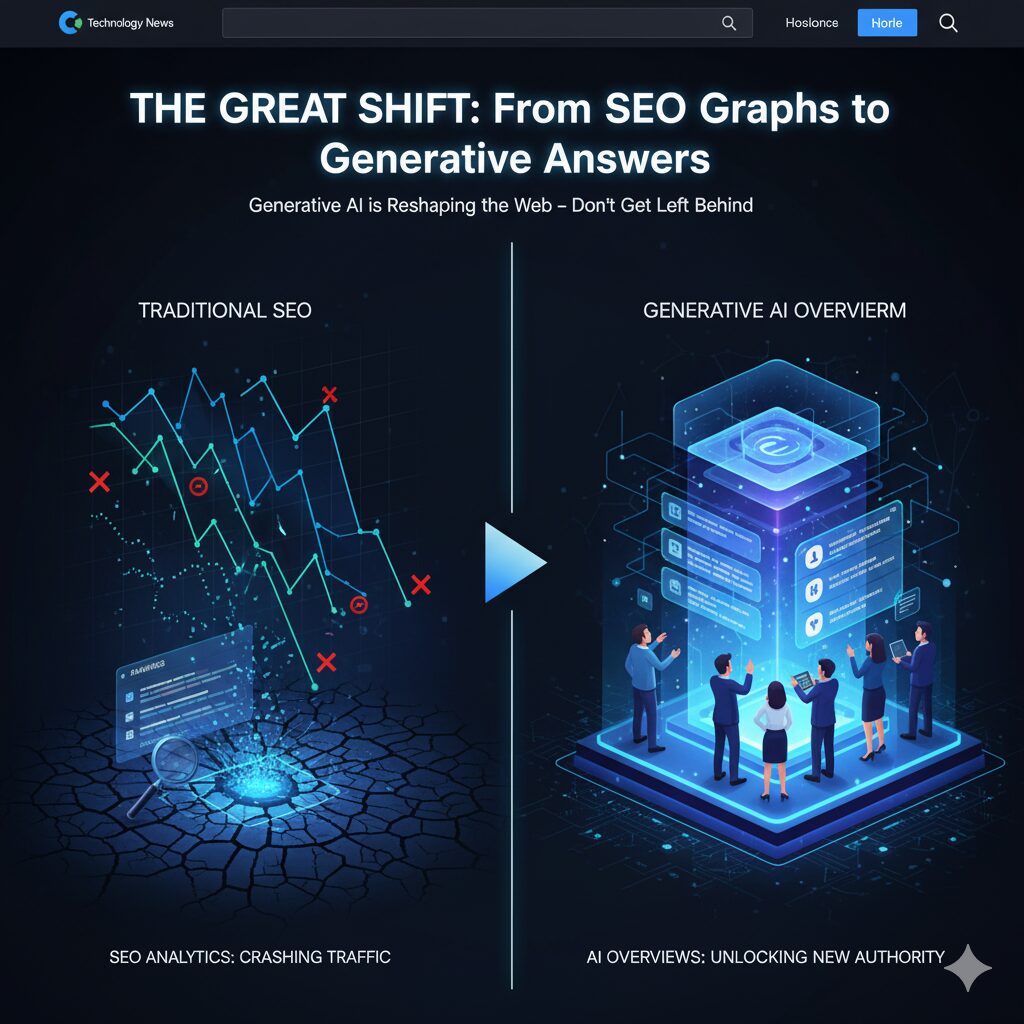Let’s break it down simply.
- Traditional SEO: You ask Google a question. It gives you a list of 10 blue links. You click one to find your answer. Your goal as a business was to be one of those links, preferably the first one.
- Generative Engine Optimization (GEO): You ask a generative AI (like Google’s AI Overviews, ChatGPT, or Perplexity) a question. It doesn’t just give you links. It scours the web, reads multiple sources, synthesizes the information, and writes a direct, comprehensive answer for you right on the page.
GEO is the practice of optimizing your content to be the source the AI trusts and cites within that generated answer.
Think about that. The goal is no longer just to rank. The goal is to be the answer itself.

The “Zero-Click” Tsunami: Why This Is an Emergency
Here’s the part that should make you sit up straight.
In the new world of AI-powered search, users get their answers without ever clicking a link. This is the “zero-click” reality.
If your “10 ways to bake a perfect apple pie” article is #1 on Google, that’s great. But if the AI summarizes your 10 ways (and your competitors’ ways) into a neat little paragraph at the top of the page, the user has no reason to click your link.
Your traffic from that keyword? It’s gone. Poof.
This isn’t a distant-future problem. This is happening now. Google is rolling out its Search Generative Experience (SGE) to more and more users. The shift is here.
If your brand isn’t cited in that AI-generated summary, you do not exist to that user.
That is the opportunity you are missing. It’s not a small opportunity—it’s your entire future pipeline of organic traffic and authority. The businesses that master GEO first will become the new “trusted sources” of the AI era, while old-school SEO players will watch their traffic flatline.

How to Win at GEO: It’s Not SEO, It’s E-E-A-T on Steroids
So, how do you fight back? You don’t. You adapt.
Optimizing for an AI engine is different from optimizing for a simple algorithm. You can’t “trick” it with keywords. An AI is designed to understand context, quality, and trustworthiness.
This is where Google’s E-E-A-T (Experience, Expertise, Authoritativeness, Trustworthiness) guidelines become the new bible.
Here are the new rules of the road:
- Answer Questions Directly (BLUF): Stop “warming up” your reader. Use the BLUF principle: Bottom Line Up Front. State your answer clearly and concisely in the very first paragraph. The AI is looking for a quick, confident answer to grab.
- Use Conversational Language: People aren’t just typing “best running shoes” anymore. They’re asking the AI, “What are the best running shoes for a beginner with flat feet for under $100?” Your content needs to be built around answering these long-tail, conversational questions.
- Structure for Skimming (and for Bots): AI engines love well-structured content.
- Use clear headings (H1, H2, H3) to break up your topics.
- Use bullet points and numbered lists.
- Use schema markup (the “behind the scenes” code) to label your content (e.g., “this is a recipe,” “this is an FAQ”).
- Prove Your Authority: Why should the AI trust you? You have to show your work.
- Cite your sources and link to other authoritative studies or data.
- Include quotes from experts (and name them!).
- Showcase original data. Did you run a survey? A test? An experiment? Share the results. AI loves original data.
- Build Your Brand Entity: The AI is trying to connect the dots. It’s asking, “Is this brand a real, trusted entity on the topic of ‘running’?” Your goal is to be mentioned everywhere—in news articles, on podcasts, in reviews, and on social media—so the AI sees you as a central authority, not just a random website.

The Time to Act Was Yesterday
This isn’t a “wait and see” moment.
The businesses that are adapting their content strategy right now are laying the foundation to be the dominant voices for the next decade of search. They are teaching the AI that they are the authority.
Every piece of content you publish without thinking about GEO is a wasted opportunity—a missed chance to train the AI that you’re the one with the answers.
Don’t be the business still wondering how to optimize a meta tag while your competitors are literally becoming the voice of the internet. The generative engine is learning. Make sure it’s learning from you.




